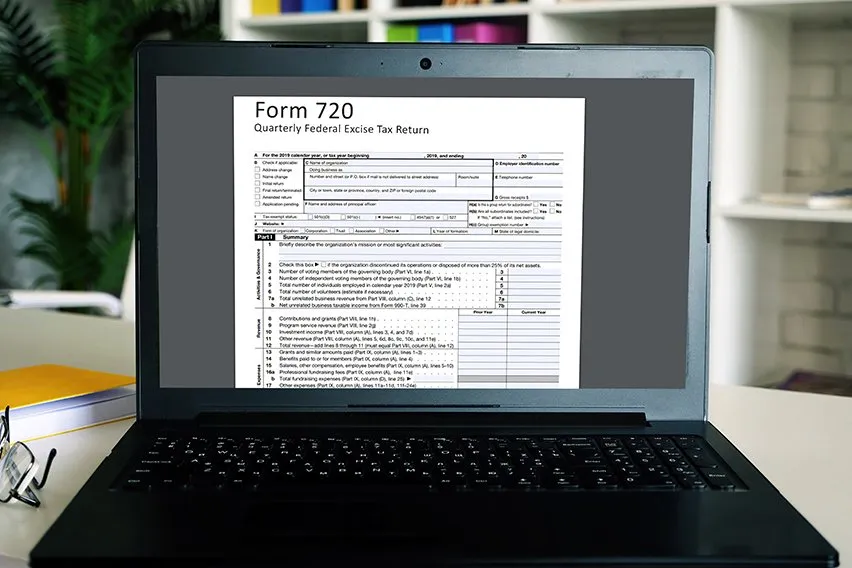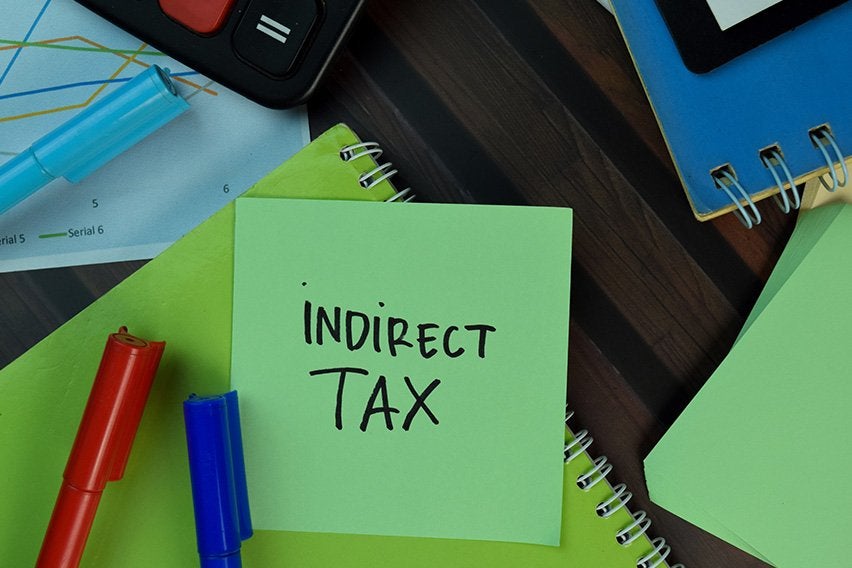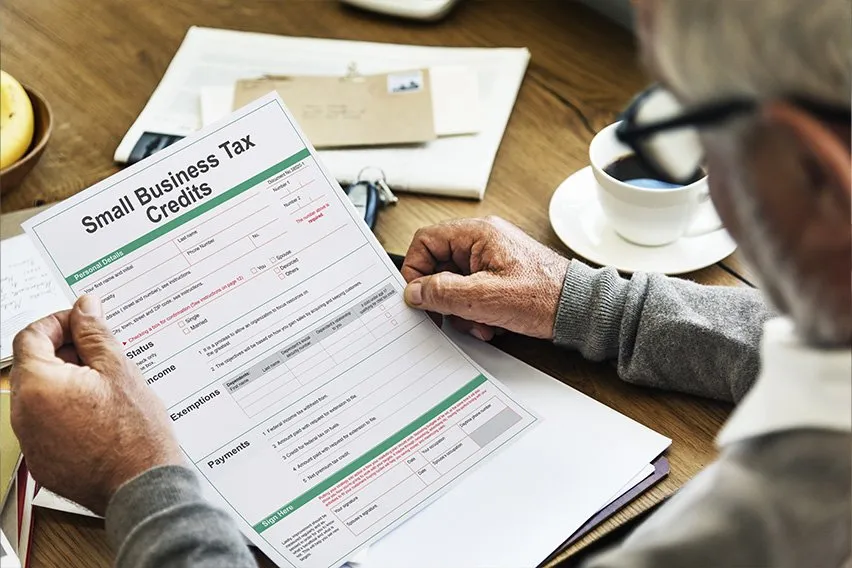What Is Form 720? It’s a Hidden Tax

Form 720 is a tax form required of businesses that deal with the sale of certain goods (like alcohol or gasoline) and services (for instance, tanning salons). These businesses are required to pay extra taxes, known as “Excise Taxes”, and they are accounted for through this form.
The cost amounts associated with excise taxes are usually passed down to the consumer by being absorbed into the sale price a business will charge.
Here’s What We’ll Cover:
What Goods Are Subject to Excise Tax?
What’s the Difference Between Excise Tax and Sales Tax?

What Goods Are Subject to Excise Tax?
Goods subject to excise tax are typically (but not all) products or services that are considered to be harmful to people, or the environment. They include:
- Airline tickets
- Alcohol
- Automobiles (that consume large amounts of gasoline)
- Bow & Arrows (and accessories)
- Business telephone lines
- Coal products
- Crude oil and petroleum products
- Electric outboard motors
- Firearms
- Fishing equipment
- Foreign insurance
- Gambling
- Gasoline
- Indoor tanning services
- Tires (for highway vehicles)
- Trucks & trailers
- Tobacco products
An excise tax is also referred to as an “excise duty” or “sin tax”. Excise taxes can be imposed by federal, state or local governments. Federal excise taxes are reported and paid through form 720.
The Internal Revenue Service’s 720 form can be found here.

Who Pays the Excise Tax?
The business that buys the product, or the seller of the service, pays the excise tax. This is accounted and paid for quarterly through form 720 (in the case of alcohol, tobacco and firearms, the reporting may be semi-monthly).
Consumers also contribute indirectly to the payment of the tax, as the business selling the product typically increases the purchase price in order to cover what they are paying in excise taxes. This increase in price can affect a business’s volume of sales.
For example, in April of 2017, the excise tax for a pack of 20 cigarettes in the State of California was increased by $2.00 per pack, from .87 to $2.87. According to CNBC, sales throughout the state were reported to have dropped by as much as 50%, as a result.
There are penalties for both failing to file form 720, and failing to pay the taxes owing.
What’s the Difference Between Excise Tax and Sales Tax?
Sales tax is applied to the sale of almost all products and services, and is a percentage of the price charged. Excise tax is an additional tax that applies to very few products or services. It can be a percentage, but it is usually a predetermined amount (based on a “per unit” charge) and can be more than the sales tax.
RELATED ARTICLES

 Indirect Business Taxes: A Definition and Examples for Small Businesses
Indirect Business Taxes: A Definition and Examples for Small Businesses How Much Does a Small Business Pay in Taxes?
How Much Does a Small Business Pay in Taxes? How Much Do You Have to Make to File Taxes in 2025
How Much Do You Have to Make to File Taxes in 2025 How Much Cash Can You Deposit?
How Much Cash Can You Deposit? Can I Sue My Tax Preparer For Not Filing My Taxes?
Can I Sue My Tax Preparer For Not Filing My Taxes? Can I Deduct Health Insurance Premiums? It Depends
Can I Deduct Health Insurance Premiums? It Depends